There are times when a seller chooses to represent themselves in the sale of their property. While we don’t recommend this for sellers, and we caution buyers, you can have a successful transaction should you choose to go this route when looking for a home that fits your needs. Learn more about how to buy a for sale by owner home.
How Does Owner Financing Work?
 Owner financing is not as complex as it may sound. Like a conventional mortgage, money will be owed for the price of the property and may include interest. The buyer may be required to supply a down payment, which is typically a percentage of the cost of the home.
Owner financing is not as complex as it may sound. Like a conventional mortgage, money will be owed for the price of the property and may include interest. The buyer may be required to supply a down payment, which is typically a percentage of the cost of the home.
The process starts with the buyer agreeing to the conditions set by the seller about the purchase and both parties signing a Real Estate Purchase Agreement. The amount of debt, repayment schedule, interest rate, whether a balloon payment is involved, penalties for late payment, and other essential details of the loan are outlined in a promissory note drafted by the seller.
The two documents – the Real Estate Purchase Agreement and a promissory note – complete an owner financed transaction. However, in cases where the seller is in full ownership of the property a Contract for Deed can be used.
A Contract for Deed eliminates the need for a promissory note but has no significant impact on the transaction’s foundation from the buyer’s perspective.
To break that down a little better, here is a list of all exchanges made:
- The seller brings evidence of property ownership.
- The buyer clears the down payment and promises to pay off the remainder in predetermined installments.
- The closing agent provides a promise that the home in question has a good title and a title insurance company backs it up.
Types of Owner Financing
While the seller remains the primary determinant of the loan terms, most owner financing transactions are negotiable. As a buyer, legal advice may be necessary at this stage as the agreement is subject to state-specific laws and regulations.
The down payment in many agreements is negotiable, though most sellers place a limit to ensure their equity is protected.
Common types of owner financing include:
All-Inclusive Mortgage
This is a form of secondary financing where the property owner’s mortgage remains intact. The seller and the buyer agree to an amount toting up to the seller’s mortgage balance and their desired profit. It is the seller’s responsibility to ensure the payment is made to the lender as the buyer can only make payments to the seller. Note that if the buyer makes a late payment or defaults, the seller will still be required to pay the due installment.
Carry Back Financing
In this, the buyer doesn’t get full financing from the seller. The difference in the loan amount is made for by a second mortgage offered by the seller.
The seller legally must accept the risk of the buyer defaulting to pay, and penalties slapped on late payments. This perhaps explains why you should have a good credit report to get a carry-back loan.
Assumable Mortgage
The assumable mortgage option gives the seller the opportunity to transfer the mortgage payments to the buyer. It has been shown to be favorable to buyers whose credit score cannot allow them to get full financing. If the price of the home is more than the loan balance, the buyer will have to clear the difference in another mortgage or down payment.
Land Contract
Also referred to as a contract for deed, a land contract is a type of owner financing where an agreement is reached that the seller should hold the deed until the payment is made in full. An initial payment is made followed by predetermined installments over some years, after which the buyer is handed the deed and given full ownership rights.
Lease Option
In this, the seller agrees to lease the property to the buyer for a specified period after which they will permanently sell the property to the buyer. The agreement may require the buyer to make an upfront payment as a promise they will purchase the property. The price of the property may also be discussed at the time of making the lease agreement.
Why Would Someone Need Owner Financing?
 Several buyer circumstances may necessitate the owner financed method of paying for the property. Below are two of the most popular reasons why buyers opt for seller financing instead of traditional mortgages and bank loans:
Several buyer circumstances may necessitate the owner financed method of paying for the property. Below are two of the most popular reasons why buyers opt for seller financing instead of traditional mortgages and bank loans:
The buyer has a poor credit score
Inability to qualify for a bank loan is probably the main reason individuals resort to owner financing. If your credit score is too low to cover the purchase price of your desired home or you’re just experiencing difficulties obtaining a mortgage, seller financing may be the only realistic option available to you.
The seller can’t find a buyer
Desperation on the home seller’s side to get rid of property that has been on the market for way too long is another common reason the owner financed transaction is preferred. The double-coincidence of wants is usually not a problem for the seller as there are enough buyers out there willing to commit to owner financing.
Benefits of Owner Financing
It is believed that the buyer is the biggest winner in an owner financing agreement basically because they have fewer risks to worry about and do not have to deal with the strict bank and financial institution prerequisites. Here are some of the advantages of seller financing to buyers:
- The purchase process is quicker. Unlike mortgage loans which need signatures from different offices, owner financing is a deal which mostly requires just the seller, the buyer, and their legal representatives.
- You may have to pay less. The bank in property sale comes as a third party that has its costs on both the seller and the buyer. It is particularly a downside to the buyer who gets the bank fees and appraisal costs implicitly included in the sale price.
To the seller, owner financing has the following advantages:
- They can gain more than through a mortgage. Owner financing allows the seller to set interest rates of their choosing
- They can dodge repair costs. Third party institutions such as banks may compel the owner to make costly repairs to the property before placing it on the market, something that doesn’t necessarily apply to owner financing agreements.
- The property may sell faster. Fewer formalities translate to a quicker sale as long as the buyer has been found.
Shortcomings of Owner Financing
 Here are some of the disadvantages of home financing to the buyer:
Here are some of the disadvantages of home financing to the buyer:
- Potentially higher interest rates. In owner financing, the seller is charged with determining the interest rate, which gives them the power to charge higher interest.
- Credit score might still apply. The owner financing option doesn’t necessarily save you from having to prove your creditworthiness. Most sellers would be skeptical of your ability to pay back the loan if you were turned down by a bank.
- Seller will remain the owner of the property if it forecloses. Buyers are barred from selling an unpaid-off property by the due-on-sale clause; a regulation that sellers may not be directly subject to.
Disadvantages to sellers include:
- Seller faces the ‘guarantor’ risk. In some owner financing options such as the assumable mortgage where the seller pays the lender on ‘behalf of’ the buyer, the seller will be required to continue making payments even if the buyer defaults.
- Seller would incur repair costs if they had to take back the property. If for whatever reason the seller ends up taking the property back, they will be responsible for any necessary repairs before placing the home back on the market.
- Legal fees. If the buyer makes late payments or defaults on paying back the loan, the seller, who is also the lender, will have to pay the legal charges if they opt to take the matter to court.
The Bottom Line
Owner financing can help a buyer get around the mortgage lender and finalize the purchase or sale in a timely manner. Buyers are in a position to negotiate terms and strike a deal that favors them and their income. Sellers, on the other hand, can set an interest rate of their liking and get a significant additional income.
Both parties will be able to dodge the unnecessary costs of involving a bank in the transaction, a benefit which can be shared to keep the property price down.
However, we encourage a buyer to have a real estate agent representing their interest in a transaction that involves owner financing. We have the experience and knowledge needed to make sure you are protected during this process. We can help with negotiations and ensure that your getting the best terms for the purchase.
Your real estate agent is the best source of information about the local community and real estate topics. Give Jackie Ruden Realty Team a call today at 435-272-7710 to learn more about local areas, discuss selling a house, or tour available homes for sale.







